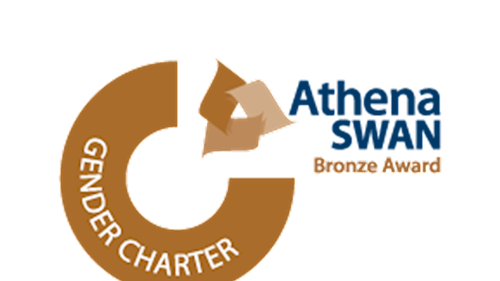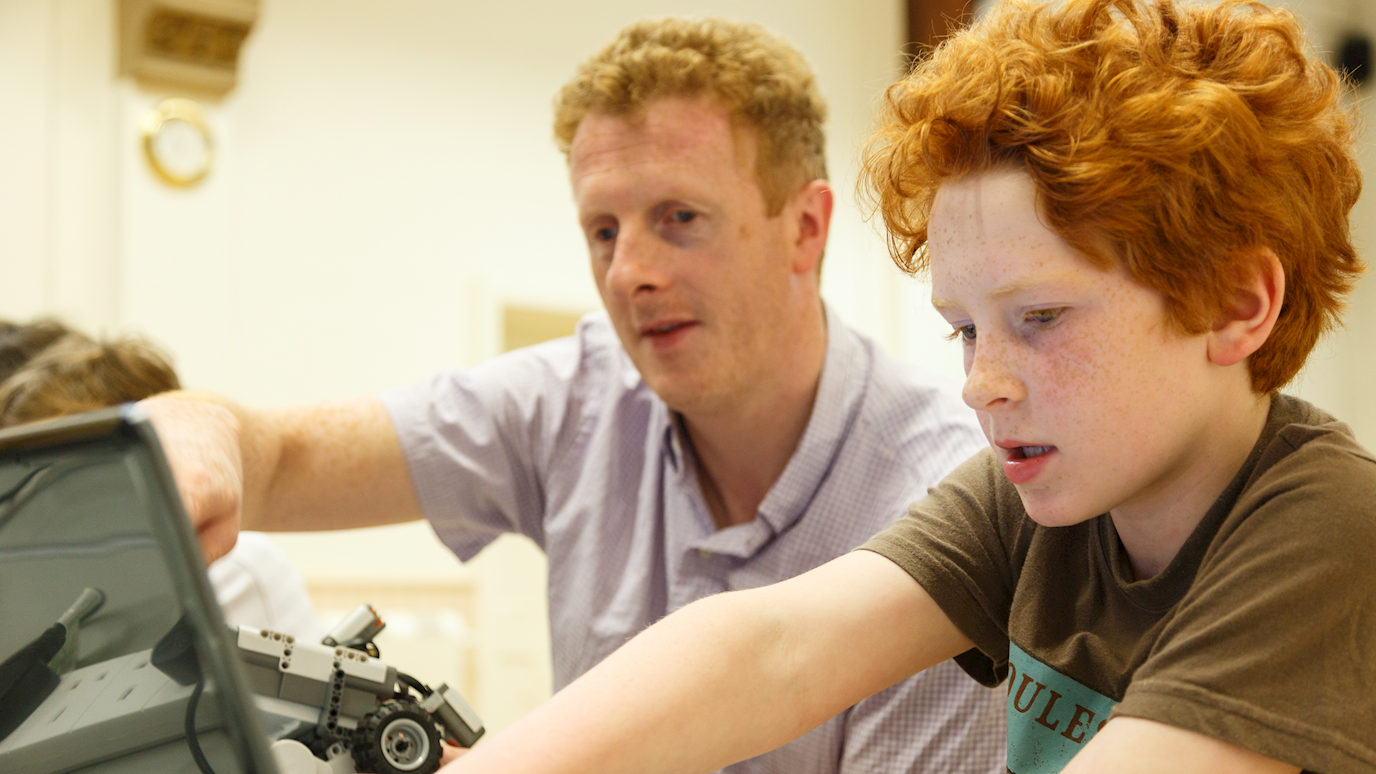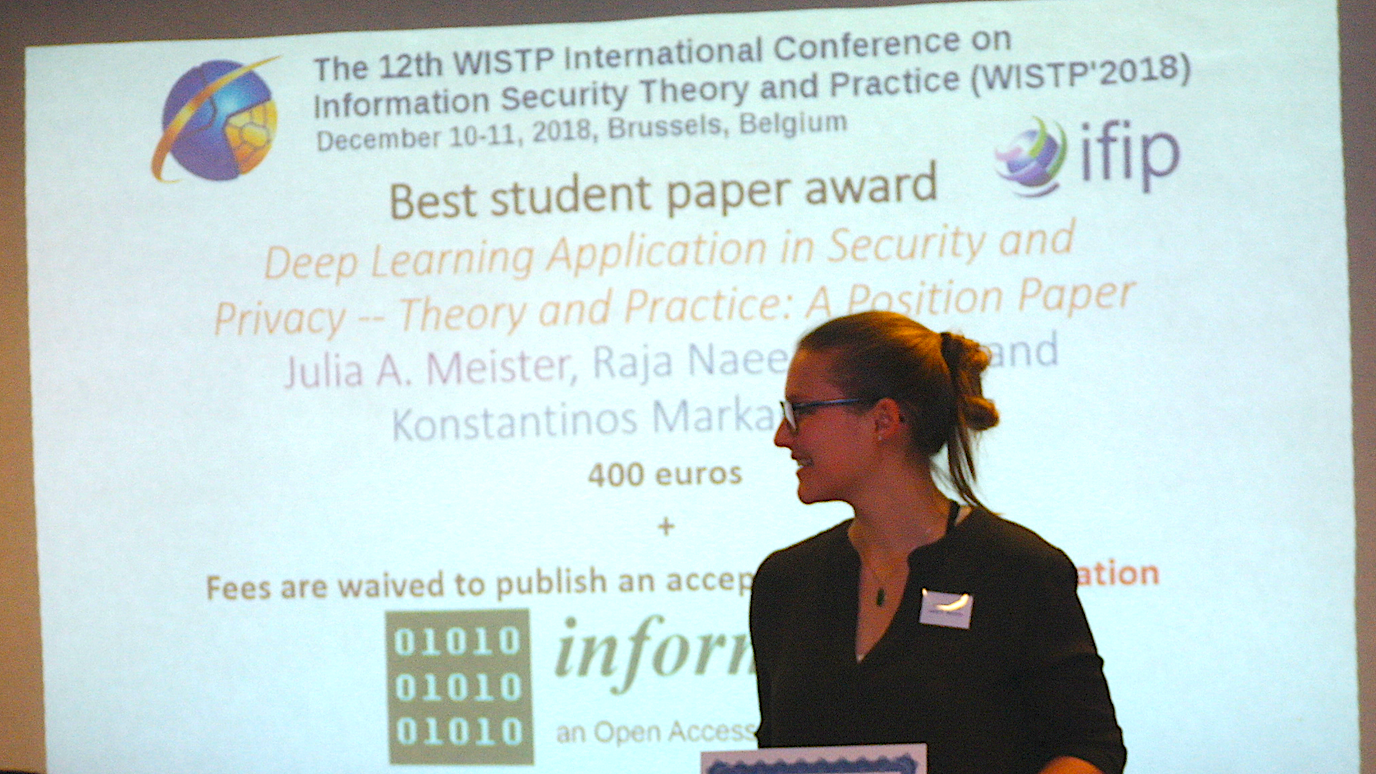We are committed to supporting female students and staff at all levels.
Although today women are in senior positions in academia or industry, the gender gap in Computer Science is still a worldwide concern, especially in the more advanced economies.
Athena SWAN
The Athena Swan Charter is a national award scheme set up by the Equality Challenge Unit in 2005 to encourage and recognise commitment to advancing the careers of women in science, technology, engineering, maths and medicine (STEMM) employment in higher education and research. The Department first received an Athena SWAN Bronze award in 2013, which was renewed in 2016. The Computer Science department has successfully renewed its Athena Swan Bronze award again, following the submission to Advance HE in May 2022
Our Bronze award means that we have provided extensive, detailed evidence that we encourage and ensure gender equality at all levels in the Department; we keep on looking for ways to improve.

Some inspiring examples
Many women have made outstanding contributions to Computer Science as an academic discipline or as a profession. Here are some inspiring examples:
- Shafi Goldwasser, a theoretical computer scientist who has twice won the Gödel prize
- Margaret Hamilton, director of the team that developed the Apollo onboard space flight software
- Lois Habt, one of the ten-person team that developed FORTRAN;
- Grace Hopper, wrote one of the first compilers and her language designs were developed into the COBOL business processing language
- Barbara Liskov, winner of the 2008 Turing Award
- Marissa Mayer, CEO of Yahoo
- Susan Nycum, carried out pioneering work in the area of information security and computer crime
- Carol Shaw, worked for Atri and is one of the first computer games designers
- Steve Shirley, founder of the Freelance Programmers group
- Mary Allen Wilkes, early personal computer pioneer
- Roberta Williams, a founder of the Sierra Games organisation who designed many classical adventure games, including the Kings Quest series
We are also very proud of the many women that work, or study, or have worked or studied in the Department. These are the profiles of some of them.
Sara Bernardini
Sara joined Royal Holloway as a lecturer in 2015 and was promoted to senior lecturer in 2017. She received her PhD degree in Artificial Intelligence from the University of Trento (Italy) in 2008. During her PhD, from 2005 to 2007, she was a research scientist at NASA Ames Research Center (California, USA) where she worked on autonomous planning agents for space mission operations.
Before coming to Royal Holloway, Sara spent three years as Research Associate in the Department of Informatics of King's College London as a member of the Planning Group, one of the world leading groups in AI Task Planning. At King's, she specialised in autonomous surveillance missions using networks of fixed and mobile sensors, both in aerial and underwater domains.
Sara's research interest and professional experience revolve around designing and building intelligent and autonomous agent and multi-agent systems through automated decision-making techniques. By extensively collaborating with industry and end-users, she has built practical applications for use in real scenarios in a number of different fields, including: space mission operations, surveillance missions, both using aerial and underwater vehicles, and assistive technology.
Victoria Coleman
Victoria is a Cyber Security and Software expert. She is currently the Chief Technology Officer of the Wikimedia Foundation, which operates some of the largest collaboratively edited reference projects in the world, including Wikipedia.
Victoria was previously a Senior Vice President & the Chief Technology Officer for the Connected Home Division of Technicolor; Senior Vice President of R&D at Harman; Vice President Engineering at Yahoo! Inc.; Vice President, Emerging Platforms at Nokia; Vice President, Software Engineering at HP Palm; Vice President of Samsung's Advanced Institute of Technology; and Director for Security Initiatives for Intel’s Digital Enterprise Group.
Victoria has also held director roles at Intel and SRI International, in security technology and system design, respectively. Before joining SRI International, she was a Reader in Computer Science for two years at Queen Mary University of London, and a Lecturer in Computer Science at Royal Holloway for six years. She received her BSc and MSc in Electronic Computer Systems and Computer Aided Logic Design, respectively, from the University of Salford, and her Ph.D. in Computer Science from the University of Manchester. She holds 4 patents and is the author of over 60 articles and books.
Narmada Guruswamy
Narmada is currently Assistant Director at EY, leading projects, building teams and working with stakeholders to design and deliver advanced analytics projects for large clients. She is also on the Skills and Diversity board of techUK and leads a section of EY's Women in Technology group.
Starting off with a basic Computer Science degree many moons ago, Narmada worked for HCL Technologies (the largest hardware provider in India at that time). After a time, she got married; with two children, countless volunteer hours and lots of freelance writing under her belt, she went back to full-time IT work in Aberdeen as a Database Engineer.
In 2013, Narmada moved to London and joined the first batch of students at Royal Holloway for a Masters in Data Science and Analytics; she graduated with distinction in 2014. She worked on visualization of high-dimensional data using the t-SNE algorithm for her final project. With no background in Statistics and Probability, and given the long break from academic studies, it was doubly sweet for her when she won the Alexey Chervonenkis Award for Best Finalist of the Year.
After she graduated, Narmada joined EY as a Data Analytics Executive, working in the Fraud Investigation & Dispute Services team. In 2016 she became Manager of the Forensic Data Analytics division.
She was one of the winners of the 2018 TechWomen100 Awards, which recognise the achievements of remarkable women within the technology sector.
Outside work, Narmada is very keen on Toastmasters, the world’s largest public-speaking programme, and has volunteered with them for many years. She continues to write frequently on many subjects and is passionate about promoting STEM education for girls.
Ursula Martin, CBE
Ursula is Professor of Computer Science at the University of Oxford, where she holds an EPSRC Established Career Fellowship. Her first Chair was at Royal Holloway where she became the first female professor in Computer Science in Great Britain. She then went on to St Andrews, Manchester, Urbana Champaign, and Queen Mary University of London where she was Vice-Principal for Science and Engineering (2005-2009). She holds an MA in Mathematics from Cambridge and a PhD in Mathematics from Warwick. She was appointed a Commander of the Order of the British Empire in January 2012 and became a Honorory Fellow of Royal Holloway in 2015.
Throughout her career Ursula has worked at the interface of mathematics and computer science. Major contributions include an explanation of the power of Hoare logic, and results linking randomness and symmetry. Her work is characterized by strongly interdisciplinary collaboration in new problem domains, identifying novel interactions between theory and practice, and collaborations on solving real-world problems to inspire new scientific advance. She is involved nationally and internationally in policy and strategy through work for the European Research Council and the Ministry of Defence, and for learned societies.
Elizabeth Scott
Elizabeth is Professor of Computer Science at Royal Holloway, a member of the EPMS School Executive committee and chair of the School Progression and Assessments Board.
Elizabeth began her research career in Mathematics, holding fellowships at the University of Oxford and at the Australian National University, Canberra. She first came to Royal Holloway to join Professor Ursula Martin's Theoretical Computer Science Group. After periods at the University of St Andrews and the University of Surrey, Elizabeth returned to Royal Holloway.
Elizabeth's research focuses on algorithms for programming language analysis. For several years she was Director of the Centre for Software Language Engineering, which held a major joint research project to develop practical formalisms for programming language semantics specification. The Centre also hosted a Leverhulme Grant to study Charles Babbage's notation, which he used to design and document his 19th-century Computing Engines. This resulted in the construction of a small scale version of Babbage's Difference Engine which is powered by a live steam engine (realising Babbage's which that 'calculations could be carried out by steam').
Bernice Soutter
Bernice is a Software Engineer at Microsoft - Lift London. She graduated from Royal Holloway in July 2016 with a first-class honours degree in Computer Science (Artificial Intelligence).
She studied History, Biology, Art and Geography at school, took a Game Ranger Course in South Africa, and went on to work for an Oracle business partner, liaising between clients and the Oracle technical staff. Interacting with the Oracle programmers sparked her desire to study for a Computer Science degree. She took a foundation course to give her the necessary mathematical background.
At Royal Holloway, Bernice became the first Women's Ambassador of our Computing Society, created the Girls-Who-Code group, and launched an amibitious and successful programme of activities, including a partnership with the Women in Technology group at British Gas. She won the Head of Department Award for Outstanding Contributions to Student Experience.
Alison Vincent
Alison joined HSBC in 2017 as Group Chief Information Security Officer. She joined Cisco in 2001 as Director of Software Development, after which she became Executive VP for R&D, Chief Software Development Officer, and Senior Director for Video Solutions. Later she became Chief Technology Officer, and Ambassador and trusted advisor for Cisco Technology to customers, start-ups, Government, partners, Press and analysts.
Alison graduated with a BSc in Mathematics and Computer Science from Royal Holloway and obtained a PhD in Mathematics and Cryptography, also from Royal Holloway. After her PhD she joined IBM as a software engineer and later became a performance analyst. In 2001, she moved to Micro Focus as Director of Development and later became Director of Strategic Alliances.
Alison is a founding member of the Women in Cyber Security group within Cisco Globally. She has a passion for people, a love of fun and technology. She is Ambassador for Women In Science and Engineering (WISE) and Science Technology Engineering and Maths (STEMnet).
Li Zhang
Li is a Reader in the Department of Computer Science, Royal Holloway, University of London, UK. She received a PhD degree from the University of Birmingham, UK. She also gained postdoctoral experience at the University of Birmingham. Before joining Royal Holloway, she was an Associate Professor (Reader) in Northumbria University. She holds expertise in machine learning, deep learning, and image/video/audio and signal processing. Specifically this has been applied to medical imaging (e.g. identification of skin cancer, retinal and lung diseases), video action recognition, audio-based disease detection, image/audio description generation, large-scale object detection and recognition for autonomous driving and underwater pipeline inspection and marine ecosystem surveillance. Some of her work also focuses on air pollution and water contamination detection, as well as environmental sensing and energy consumption and generation prediction. She is a Senior Member of the IEEE.


























